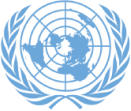Security Council
Briefing by the Chairs of Subsidiary Organs on terrorism
May 4, 2016
Statement
Mr. President,
We start by thanking the Egyptian Presidency for convening this meeting. The holding of open briefings by the Chairs of the Sanctions Committees increases the transparency of the Security Council proceedings, which the UN membership has been calling for, especially in matters of great political sensibility such as the sanctions regimes.
We took note, with appreciation, of the briefings provided by Ambassadors Gerard Van Bohemen, Chair of the Sanctions Committee on ISIL (Da'esh), Al-Qaida, and related individuals and entities; by Ambassador Amr Abdellatif Aboulatta, Chair of the Committee Concerning Counter-Terrorism; and Ambassador Román Oyarzun, Chair of the 1540 Committee.
We acknowledge the existence of organic linkages between the Sanctions and Counter terrorism Committees, their respective groups of experts, as well as among UN specialized agencies, member States and the wider international community in dealing with impending threats to peace and security caused by terrorism worldwide.
The holding of this session, less than a month after the debate on the 14th of April on threats to international peace and security caused by terrorist acts demonstrates the Council’s commitment in combating the threat posed by terrorism in all its forms and manifestations.
Mr. President,
The report by the Chair of the sanctions Committee on ISIL (Da'esh), Al-Qaida, and related individuals and entities highlights the expansion of ISIL beyond Iraq and Syria, the shifting of its center of gravity, due to military pressure put on it, with ensuing loss of territory and the destruction of significant parts of its oil infrastructure.
A matter of great concern, expressed in the report, is the return home of many foreign terrorist fighters, and the additional threat caused by this development, that as the President of the Committee stresses, pose both a challenge and an opportunity for improving the impact and effectiveness of the 1267 sanctions regime which has the ultimate goal to degrade and destroy these lethal terrorist organizations.
Notwithstanding that sanctions by themselves are not enough to win the fight against terrorism, it is imperative to strengthen global, international, regional and sub-regional cooperation, as well as national capacities at all levels and find creative ways to launch an ideological struggle to successfully confront the terrorists.
The phenomenon of foreign terrorist fighters calls for enhanced cooperation between states, international and regional organizations, relevant UN bodies and partners to put an end to the flow of FTF's, an approach that should be at the center of the Committee's efforts and runs parallel with the activities deployed by the 1373 Committee on countering terrorism.
The Guiding principles identified to assist Member States in their efforts to stem the flow of Foreign Terrorist Fighters, the Global Surveys on the implementation of SC resolution 1373, the use of information and communication technologies for terrorist purposes, the trends in terrorist financing, the efforts to cut the flow of funds and undermine the terrorist's capacities to exploit natural and economic resources in territories under their control, are matters identified in the Chair's report as fundamental responses States should develop for their security concerns.
Still concerning the report by the Chair of the Counter Terrorism Committee, we share his view on the need to implement measures permitting the Committee to act more rapidly and efficiently in its dialogue with member states by improving its responsiveness to their needs based upon the principle of national ownership.
Mr. President,
the extreme violence of acts perpetrated by the terrorists substantiate their determination, already proclaimed, to make use of weapons of mass destruction, a would be development of catastrophic dimensions that, as the Chair of the 1540 Committee reminds us, can be avoided only by constant vigilance by member-States to prevent non-State actors from acquiring and using weapons of mass destruction.
It is against such backdrop that the 1540 Committee is undertaking a comprehensive review on the implementation of resolution 1540, highlighting the need of continuous vigilance at national, regional and international levels, along with sustained and intensified support from the Committee.
The priorities and main thrust highlighted by the Chair of the Committee for the Comprehensive Review of Resolution 1540 meets our support and encouragement, by streamlining Security Council's efforts in strengthening cooperation and effective coordination between the Committee and the overall framework set up to combat terrorism, including the Counter-Terrorism Committee and the Sanctions Committees related to terrorist activities.
Thank you very much


